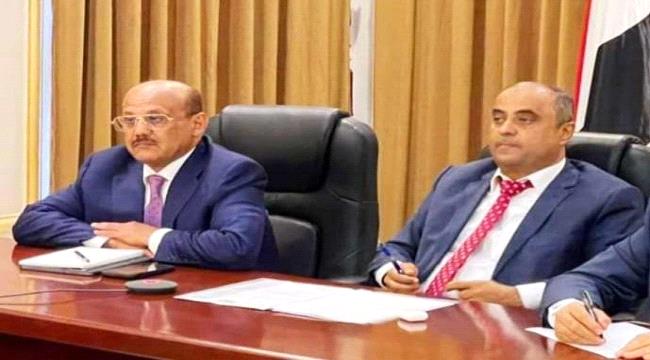Aden’s salary crisis: Sharp dispute between pro-coalition government, Central Bank governor threatens economic collapse
ADEN, Sept. 07 (YPA) – A deepening dispute between the head of the government loyal to the Saudi-led coalition, Salem bin Braik, and the governor of the Central Bank in Aden, Ahmed Al-Ma’abqi, has led to a halt in salary payments for public employees and some Islah Party-affiliated factions for the fourth consecutive month.
The conflict, seen as a power struggle between different government factions, has deep roots and is currently centered on the issue of salary payments.
The Details of the Crisis
According to economic sources, Al-Ma’abqi, who is supported by the U.S. Treasury, has rejected the three options proposed by the government for paying salaries, labeling them as “inflationary” and a threat to the stability of the local currency.
Al-Ma’abqi justifies his stance by stating that the government’s account is burdened with debt, and he refuses to use funds from private commercial banks held by the Central Bank, asserting they are not government property.
Conversely, informed sources accuse the bank governor of trying to justify his position by claiming the government is “indebted and incapable of collecting its resources,” despite its failure to compel over 147 official entities to deposit their revenues with the Central Bank. Al-Ma’abqi has also intensified his refusal to use printed currency held at ports, warning that injecting it into the market would lead to an economic catastrophe.
A Power Struggle over Authority
Sources indicate that the core of the conflict lies in the absence of clear legal texts defining the powers of both the government and the Central Bank. This has led each party to cling to its position based on differing legal interpretations.
The bank governor has accused the head of government of overstepping his authority by spending financial funds on unnecessary items and paying salaries to entities that are not a priority during wartime.
Solutions at an Impasse
The crisis is considered complex, as the head of the pro-coalition government does not have the authority to dismiss the bank governor, who enjoys strong support from the U.S. Treasury and the International Monetary Fund.
Observers believe the key to a solution lies with the head of the pro-coalition “Presidential Leadership Council,” Rashad Al-Alimi, who is accused of obstructing the economic reforms that Bin Braik is attempting to implement.
This situation persists while various entities affiliated with council members, such as the Islah party in Marib and Tariq Saleh’s forces in Mocha, continue to control massive financial revenues that are not deposited with the Central Bank.
YPA


